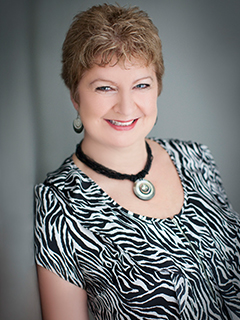Q + A with Mary Hedges
Dr Mary Hedges joined NZWRI as a research developer in 2013. Mary is a behavioural economist with expertise in multivariate analysis and analysing diverse social/behavioural data. When asking Mary to fill in the blanks: “Economics is___, ___, and ___”, here is what she said:
Economics is science, social activism, and fun.
1. When and why did you decide that you wanted a career in economics?
Having done pure sciences all through school and at university when I left school, I hadn’t considered economics. I had taken it in the 7th form (year 13 now) in order to avoid pure maths as it was in the day – the irony of that!! I really discovered economics when I went back to university in my 30s and took a compulsory first year economics paper as part of my business degree at Massey. While I really struggled with the content, I loved the ideas and the questions that it helped me approach. Based on this, I took a second paper, just in case the fascination of the first one was an accident and fell in love with it even more. The die was cast. Before I knew it, I had changed degrees and was captured by, what to me, was a perfect mix of the structure and models of science with a social heart and soul.
2. Describe what you do now.
I’ve attempted to retire but can’t quite let go so instead of ‘doing’ the research I now focus on enabling that research for our team here at NZWRI. I write funding proposals and try to convert what the researchers want to do with opportunities for funding that are available. When I was teaching, I always tried to convey to students the need to answer the question and not just to brain dump what they knew on the topic. My work now is forcing me to live this – and I love it.
3. Describe some of your best victories in your current role.
I think the main thing for me is actually the trajectory of the Institute. In 2016, when Gail first convinced me to try this role, the external funding for the Institute was below 100k a year. Last year we received multi-year funding from both the Health Research Council (HRC) and an MBIE Endeavour programme as well as numerous smaller projects totalling over $7 million. The second thing I’ve found exciting is the range of organisations that we have receive funding from and collaborate closely with. To me this illustrates what attracted to me economics in the first place – the versatility of the economic toolbox to answer a wide range of questions, and the potential real-life impact of economics research.
4. How was this achieved?
Our success is owed in large part to our Director, Gail, but it has been built on an explicit strategy of growing our reputation for successfully completing small projects and then slowly building on both their size and time frame. We quickly achieved this and gained a reputation for not just completing the research project, but ensuring its translation for a wider audience. This also enabled us to build our research team and therefore our capacity. Each new milestone provided me with the inspiration to aim higher. Last year’s success with funding from both HRC and MBIE is the culmination of this strategy and deeply satisfying. Now the challenge is to keep the pipeline flowing. I have seen too often where large, multiyear projects are funded in a centre and the focus moves to the project instead of the funding pipeline. At the end of the project there is nothing to carry on with, leading to top people no longer having jobs and everything going back to scratch.
5. What do you enjoy doing in your spare time?
Top of my list is spending time with my 4.5-year-old grand-daughter, Jessica. Unfortunately, she is in London, so I do spend substantial blocks of my time in the UK/Europe with her (and our son and daughter-in-law). When home, I swim with a squad at Onehunga pools and also do a couple of the ocean swim series in Auckland and around NZ. My husband now complains he has become a swimming widower in the summer. I also like to read, watch The Chase and while I do a wide range of crafts, I love to cross-stitch.

Further information
To find out more about Mary Hedges, her extended research expertise and academic career, please visit her academic profile.